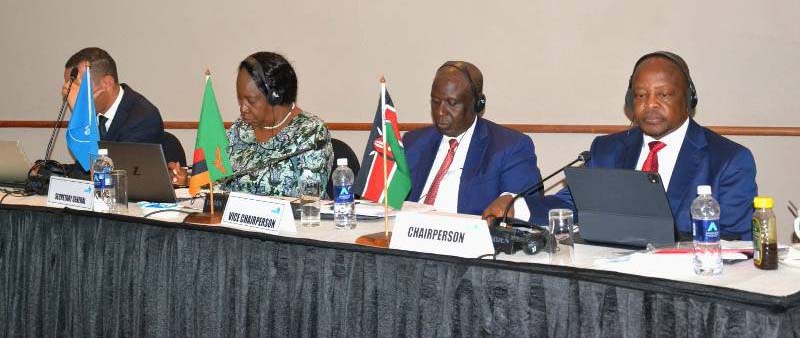
Kenya’s Cabinet Secretary for Agriculture, Mutahi Kagwe, has made a strong appeal to the Common Market for Eastern and Southern Africa (COMESA) to implement a uniform ban on hazardous pesticides throughout its 21 member states. Speaking at the 9th Joint COMESA Ministerial Meeting on Agriculture, Natural Resources, and Environment in Lusaka, Kagwe stressed the urgent need for regional harmonization of agrochemical regulations to safeguard food safety, public health, and the integrity of agricultural trade.
Currently, the inconsistent application of pesticide bans within COMESA countries presents serious challenges. Chemicals prohibited in one nation are still legally used just across the border, creating a regulatory patchwork vulnerable to exploitation. Kagwe warned that this situation exposes farmers and consumers to unnecessary health risks and threatens the reputation of regional agricultural products.
“This lack of uniformity undermines our collective Sanitary and Phytosanitary (SPS) measures. Rogue traders exploit these gaps, resulting in contamination that erodes consumer confidence in our food systems,” Kagwe explained. He emphasized that such fragmentation in policy not only endangers public health but also disrupts trade and food security goals.
Kagwe urged COMESA members—including Burundi, Comoros, Democratic Republic of Congo, Djibouti, Egypt, Eritrea, Eswatini, Ethiopia, Kenya, Libya, Madagascar, Malawi, Mauritius, Rwanda, Seychelles, Somalia, Sudan, Tunisia, Uganda, Zambia, and Zimbabwe—to act decisively, noting that harmonizing chemical safety standards is critical and non-negotiable.
Apart from pesticide regulation, Kenya proposed practical measures to enhance regional agricultural cooperation. These include sharing livestock vaccines to boost animal health, establishing clear guidelines for cross-border trade in certified seeds, and utilizing digital technologies to strengthen agricultural planning and productivity.
Highlighting Kenya’s experience, Kagwe pointed to significant economic losses caused by export rejections tied to pesticide contamination. He underscored the importance of also providing farmers with affordable, safe, and effective alternatives to banned substances to minimize livelihood disruptions during the transition.
Ending with a call for visionary leadership, Kagwe urged the COMESA bloc to evolve beyond a platform for discussion into an active driver of economic development, agricultural resilience, and food self-reliance for the region.
